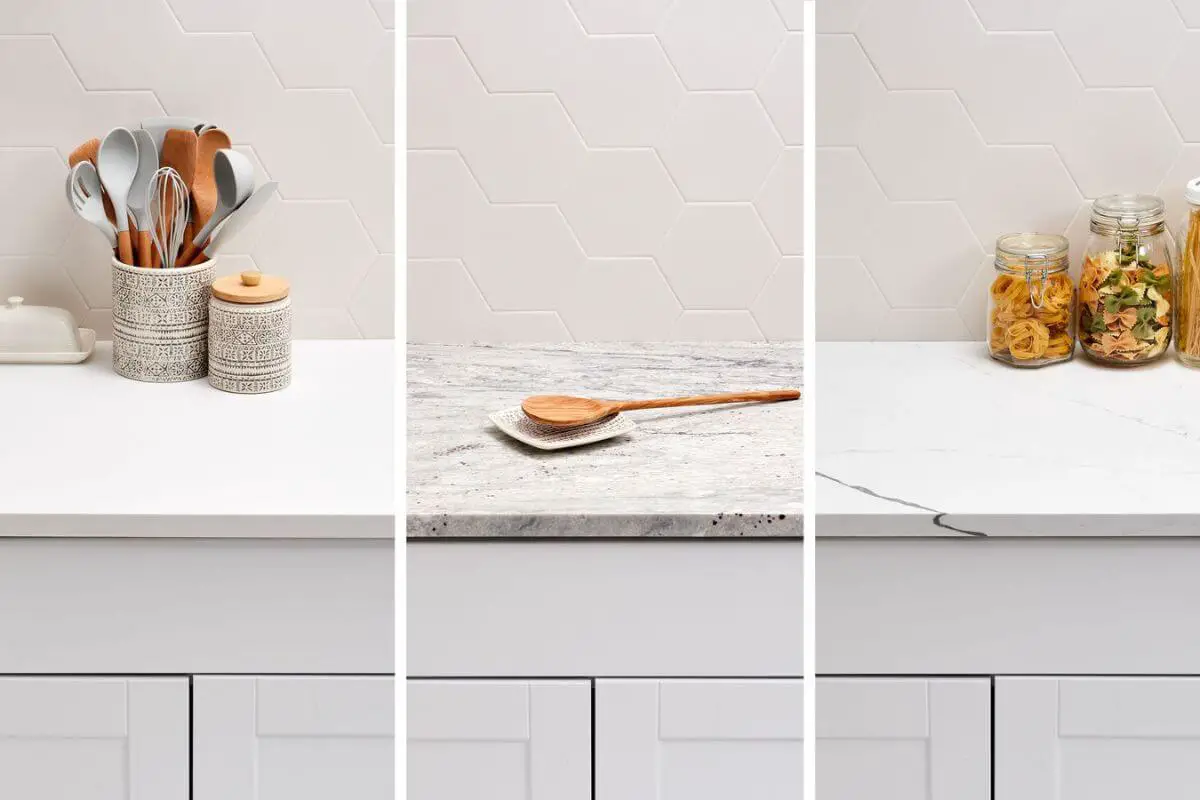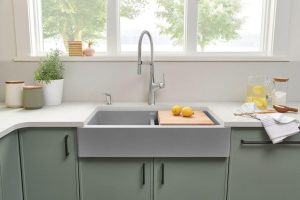When it comes to choosing the perfect countertop material for your home, there are a plethora of options available in the market. Two popular choices that often find themselves in the spotlight are Corian and Formica. Both materials offer unique qualities and advantages, but they also have their differences. In this article, we will delve into the world of Corian and Formica countertops, comparing their features, benefits, and drawbacks, so you can make an informed decision for your kitchen or bathroom remodeling project.
1. Introduction
Countertops play a crucial role in enhancing the aesthetic appeal and functionality of your kitchen and bathroom spaces. With Corian and Formica emerging as popular choices, it’s essential to understand the differences between these two materials before making a decision.
2. Corian Countertops
What is Corian?
Corian is a brand of solid surface material created by DuPont. It is composed of a blend of acrylic polymer and natural minerals, resulting in a versatile and durable countertop option.
Advantages of Corian
Corian countertops offer seamless integration, meaning they can be installed without visible seams. This creates a smooth and visually appealing surface. Additionally, Corian is non-porous, making it resistant to stains and easy to clean. It also allows for integrated sinks and backsplashes, giving a cohesive look to your space.
Drawbacks of Corian
While Corian is durable, it can be susceptible to scratches and heat damage. It may require occasional maintenance to keep its polished appearance. The cost of Corian can also be higher compared to other materials.
3. Formica Countertops
What is Formica?
Formica, on the other hand, is a high-pressure laminate (HPL) material known for its affordability and wide range of designs. It is created by bonding layers of paper soaked in resin under high heat and pressure.
Advantages of Formica
Formica countertops are budget-friendly and offer an extensive selection of colors, patterns, and textures. It is highly resistant to scratches and impact, making it suitable for high-traffic areas. Formica also requires minimal maintenance and is relatively easy to install.
Drawbacks of Formica
Formica can be more susceptible to burns and chips, as it is not as heat-resistant as some other materials. While it is durable, the seams in Formica countertops can be more visible compared to seamless options like Corian.
4. Comparing Corian and Formica
Aesthetics and Design Options
Corian provides a seamless and elegant look, while Formica offers a wide array of design choices. The choice depends on your preference for a seamless appearance or a diverse selection of patterns.

Durability and Longevity
Corian is more resistant to scratches and stains, but Formica is highly durable and resistant to impact. Both materials can last for many years with proper care.
Maintenance and Care
Corian’s non-porous nature makes it easier to clean, while Formica requires minimal maintenance. Corian may need occasional polishing, and Formica should be protected from excessive heat.
5. Choosing the Right Countertop
When choosing between Corian and Formica, consider your priorities—whether it’s aesthetics, durability, or budget. Both materials have their strengths, so make a decision based on your specific needs.
6. Cost Comparison
Corian tends to be more expensive upfront due to its premium quality, while Formica offers a cost-effective option that doesn’t compromise on style.
7. Installation Process
Corian installation requires professional expertise due to its seamless nature, while Formica installation can be relatively straightforward.
8. Environmental Impact
Corian’s manufacturing process involves the use of acrylic polymer, while Formica relies on paper and resin. Consider your environmental values when making a choice.
9. Corian vs Formica: Real User Experiences
Hearing from those who have used these materials can provide valuable insights. Look for reviews and testimonials to understand how Corian and Formica perform in real-life scenarios.
10. Future Trends in Countertop Materials
As technology and innovation continue to evolve, new countertop materials may enter the market. Stay informed about emerging trends before making your decision.
11. Conclusion
In the Corian vs Formica showdown, there is no one-size-fits-all answer. Your choice depends on factors like aesthetics, durability, maintenance, and budget. Take your time, explore all options, and make a decision that aligns with your vision and practical needs.
FAQs
1. Can Corian countertops be repaired if they get scratched?
Yes, minor scratches on Corian countertops can be sanded out and repaired by professionals.
2. Is Formica suitable for outdoor countertops?
No, Formica is not recommended for outdoor use as it may not withstand exposure to the elements well.
3. Can I place hot pots and pans directly on Corian countertops?
It’s advisable to use trivets or hot pads to protect Corian countertops from high heat.
4. Does Formica offer eco-friendly options?
Yes, Formica offers some eco-friendly laminate options, so be sure to inquire about sustainable choices.
5. Which material mimics the look of natural stone better?
Corian’s seamless appearance allows for a more convincing imitation of natural stone compared to Formica’s laminate seams.



